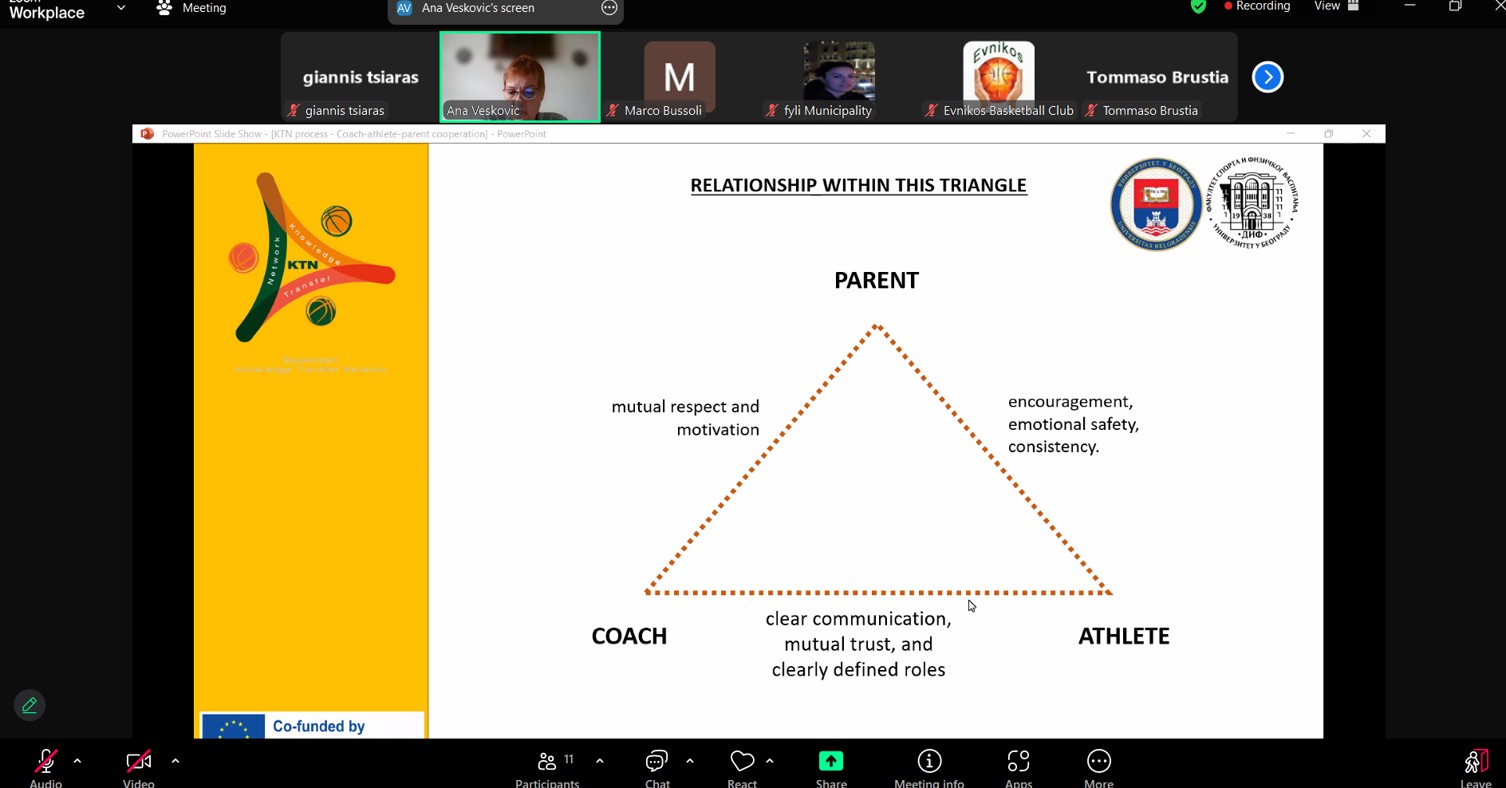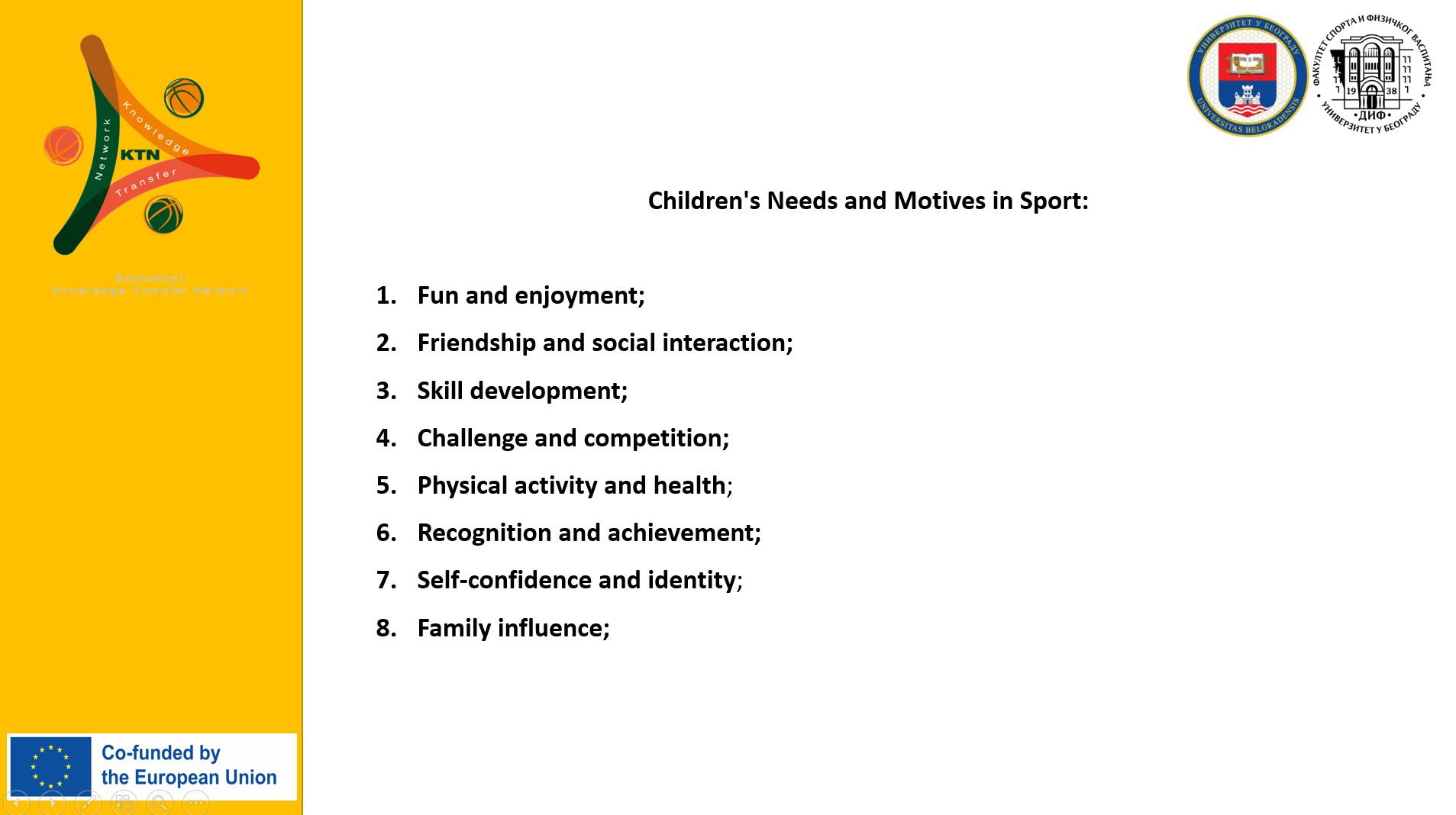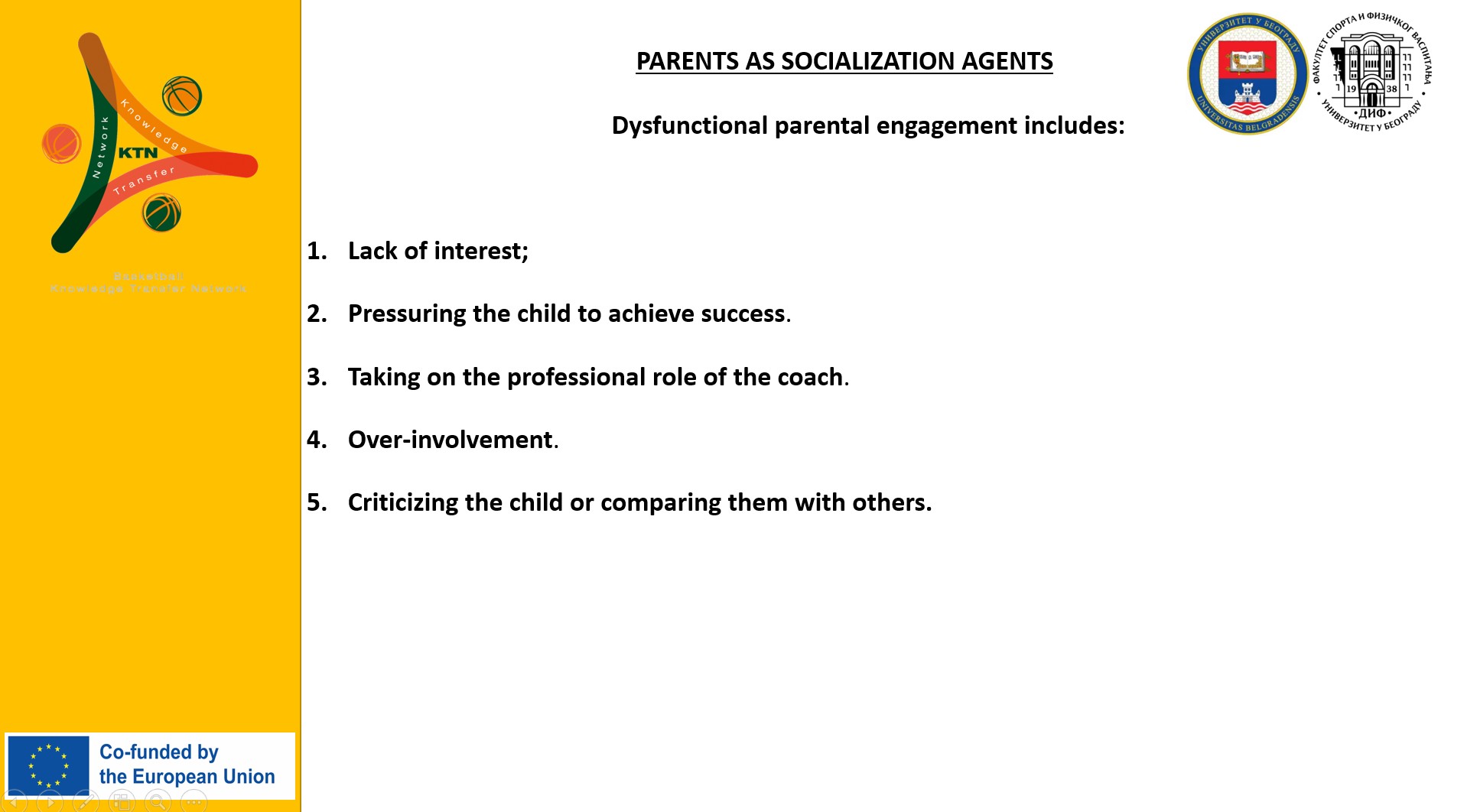Coach-athlete-parent cooperation
On April 17, 2025, the University of Belgrade, within the framework of the Basketball-KTN knowledge transfer program, conducted a training session titled “Coach–Athlete–Parent Cooperation.” The session focused on one of the most important aspects of youth sports development — the relationship between coaches, athletes, and parents, often referred to as the “sports triangle.” This three-way partnership was presented as a cornerstone of healthy athletic growth, emphasizing that success in youth sport extends far beyond performance, resting instead on trust, communication, and shared understanding.
The session opened with a discussion on the distinct yet complementary roles within this triangle. Parents provide the emotional foundation — offering support, encouragement, and stability — while coaches guide the athlete’s physical and psychological development through structured training, feedback, and discipline. The athlete, positioned at the center, thrives when these two spheres of influence work in harmony rather than in conflict.
Speakers highlighted that effective cooperation among the three parties is built upon clear communication, mutual respect, and consistent expectations. When parents and coaches align their messages, they create a cohesive and supportive environment where athletes feel both challenged and secure. This alignment reduces confusion, prevents unnecessary pressure, and reinforces values such as effort, resilience, teamwork, and enjoyment.
A recurring theme of the discussion was the importance of enjoyment and intrinsic motivation in children’s participation in sport. Young athletes engage primarily for fun, social interaction, and personal growth — not solely for competition or external rewards. Therefore, both parents and coaches share a responsibility to preserve the joy of participation, nurturing a long-term love for the game rather than focusing exclusively on short-term success.
The session also explored practical strategies for strengthening the coach–parent partnership. These included establishing open communication channels, setting shared goals, providing constructive feedback, and maintaining a unified approach to discipline and motivation. By addressing potential misunderstandings early and promoting transparency, both sides can create an environment of collaboration rather than criticism.
Ultimately, the training underscored that the most successful athletic journeys are those supported by a cohesive network of trust. When coaches and parents work together — respecting their respective roles while sharing the same vision — they help young athletes not only perform better but also develop character, confidence, and emotional resilience.
Through initiatives like this, the University of Belgrade and the Basketball-KTN network continue to highlight the social and emotional dimensions of youth sport — reaffirming that behind every successful young athlete stands a strong, cooperative triangle built on understanding, respect, and shared purpose.


